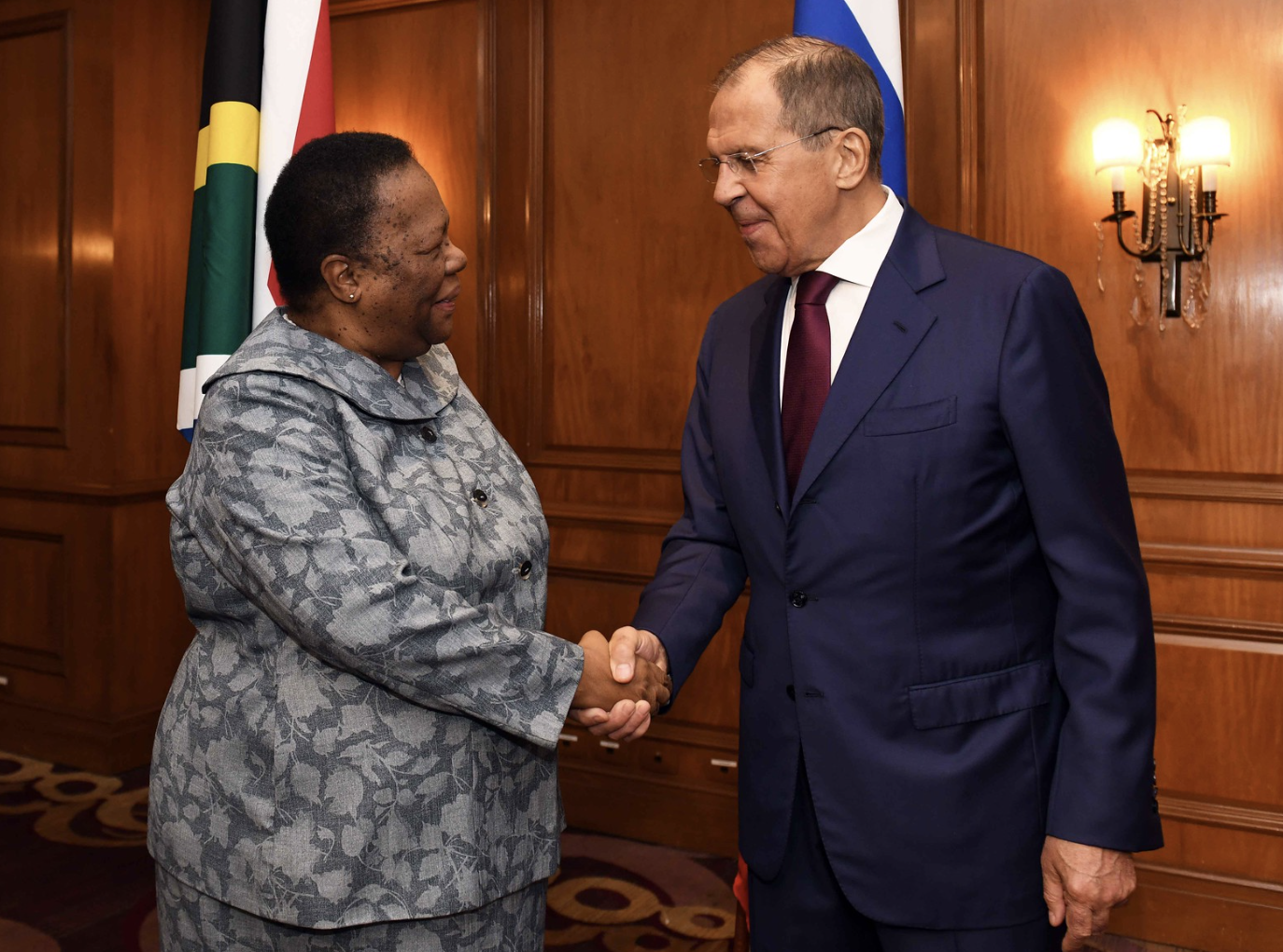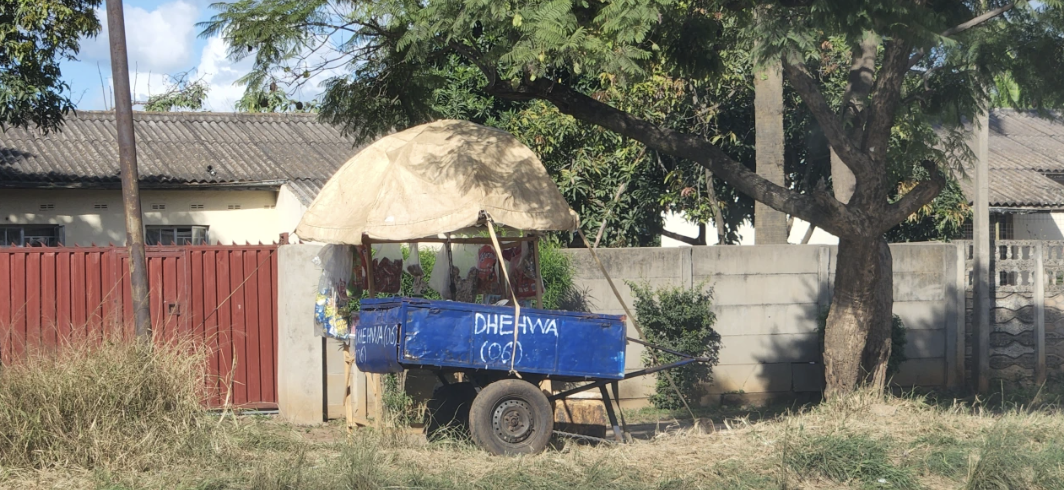News
In Apparent Effort not to Upset Putin’s Russia, ANC Government Bans Arms Sales to Poland
The ANC’s South Africa has bet firmly on a dark side of history in selecting its partner of choice in the Russification of its foreign and domestic policy. Its choice is not based on human rights, or democracy, or international law. Instead, it is a choice rooted deeply in the fiction of the past, not the promise of the future.

Research Director, The Brenthurst Foundation

Director, The Brenthurst Foundation

Following another visit by a Russian delegation entertained by International Relations and Cooperation Minister Naledi Pandor, the ANC announced on 1 April that it would undertake a working visit to the United Russia Party from 30 March to 2 April.
The party’s official notice observed that the United Russia Party, the party of Vladimir Putin, is “a longstanding ally and friend to the ANC”.
It was, surprisingly, not an April Fool’s gag.
In between toasts to the downfall of imperialism and the future of democratic centralism, the visit’s agenda, led by Obed Bapela, the ANC’s international relations subcommittee deputy chairperson and an NEC member, as well as Deputy Minister of International Relations Alvin Botes, was to include “discussions on the recalibration of the global order to reverse the consequences of neo-colonialism and the previously prevailing unipolar world”.
This full mouth of caviar came after Pandor hosted Alexander Kozlov, Russia’s minister of natural resources and environment, at the 17th session of the two countries’ joint intergovernmental committee on trade and economic cooperation.
“There are some who don’t wish us good relations with an old, historical friend,” the ANC minister said in her opening address. “We have made it clear that Russia is a friend and we have had cooperative partnerships for many years, including partnerships as we combated the apartheid regime.”
The world is no doubt going to be a safer place now. Or maybe not.
Arms sales
Such slavishness follows talk that the South African government has barred arms sales to Poland because it fears that the munitions would be passed on to Ukraine.
Independent sources – in Poland and South Africa – have confirmed that export permits for artillery ammunition sales to Poland have not been granted while applications to supply munitions to Turkey and the UAE have been accepted.
The decision is said to have been arrived at after the advice of the Department of International Relations and Cooperation and South African intelligence agencies, presumably not wishing to offend their Russian friends by arming a neighbour that supports Ukraine, even though this is precisely what end-user certificates are for, a system that South Africa has apparently signed up to.
These systems do work. Poland recently refused to send Leopard tanks to Ukraine unless it obtained permission to do so from Germany, the original manufacturing country.
Defence Web reported in February that “a Nato state” had ordered €17-million worth of 155mm Assegai ammunition.
“We’re very pleased that two customers – including a Nato member state and a non-Nato country – have again placed their trust in our globally proven Assegai indirect fire technology,” Jan-Patrick Helmsen, managing director of Rheinmetall Denel Munition, was reported as saying. “As a systems maker, we work constantly to improve our cutting-edge technologies so that we can provide our customers’ soldiers with the very best, most reliable solutions possible.”
A decision to ban munition sales to Nato countries would be devastating for the domestic arms industry and would raise new questions about the growing alliance with Russia, the belligerent in the Ukraine invasion.
Policy price tag
Given that the sanctioned Russian businessperson Viktor Vekselberg’s United Manganese of the Kalahari (UMK) is the largest donor to the ANC, it also raises questions about the price tag on South African foreign policy.
Late last year, a Russian munitions vessel docked at Simon’s Town naval base at night and goods were transferred off and on to the vessel. The SA government is yet to clarify what these goods were or whether there were any military supplies going to Russia.
If it smells rotten, it usually is rotten.
Under the terms of South Africa’s National Conventional Arms Control Committee, South Africa does not license the sale of arms to countries in conflict.
Notwithstanding that Poland is not at war and has a legitimate need to defend itself, given Russian aggression next door along with some rather obvious previous invasive Russian history in 1939, consider for a moment the countries to which South Africa admitted it exported arms in 2020.
The list includes Russia, which had invaded Ukraine in 2014 to seize areas in the east and Crimea.
According to the third quarter National Conventional Arms Control Committee report of 2022, SA arms exports were officially licensed to Niger, Togo, Zambia, US, Ghana, Azerbaijan, Brazil, Bangladesh, Denmark, France, Singapore, UAE, Germany, Philippines, Australia, India, Italy, Kazakhstan, Sweden, the UK, Saudi Arabia, Spain, Eswatini, Republic of Congo, Portugal, Chile and Nigeria.

Of this list, Denmark, the US, the UK, Germany, Australia, Sweden, Spain, Ghana, Brazil, Germany, Italy, Portugal, Chile and France were then considered (by Freedom House) to have “free” political systems.
Niger, Togo, Nigeria, the UAE, Saudi Arabia and Eswatini may all be considered to be in a state of war, internal or external, of their own or others’ making. And of this export list, Togo, Congo, Kazakhstan and South Africa, along with BRICS members India and China, voted to abstain in February’s UN General Assembly Resolution calling for Russia to leave Ukraine. Azerbaijan and Eswatini did not vote.
The resolution was passed with 141 member-states in favour, seven (Belarus, North Korea, Eritrea, Mali, Nicaragua, Russia and Syria) against, and 32 abstentions.
Coming over to the dark side
The ANC’s South Africa has bet firmly on a dark side of history in selecting its partner of choice in the Russification of its foreign and domestic policy. Its choice is not based on human rights, or democracy, or international law.
This choice is also not about where South Africa’s trade and investment interests lie. It’s about the mythology of the ANC and its tilting at ideological windmills, represented by Putin, a relic of the Cold War.
And it is about the ANC staying in power at any cost, since that is how its contracts are derived, money is made, and pockets are padded.
The West has to shoulder its share of the blame. It has given the ANC a free pass for decades, based more on the morality of the anti-apartheid struggle than the liberation movement’s increasingly dismal record of delivery, good and clean governance, and growth, a record that mirrors its behaviour and thinking in exile.
What should be clear is that the ANC is not a partner of choice for democratic nations. It represents the fiction of the past, not the promise of the future.
This article originally appeared on the Daily Maverick
Photo: Government of ZA Flickr

